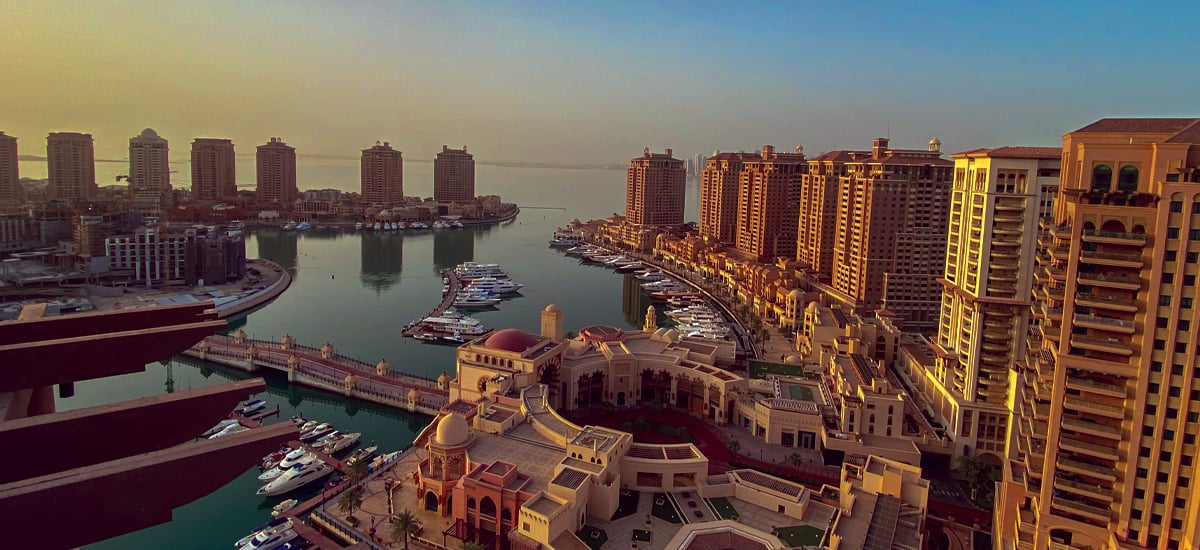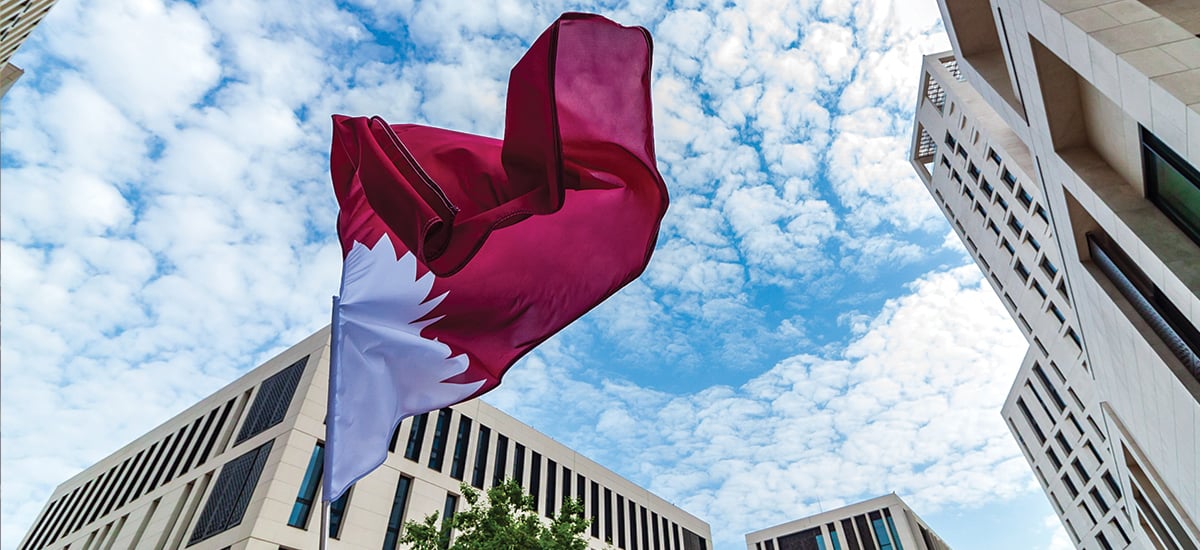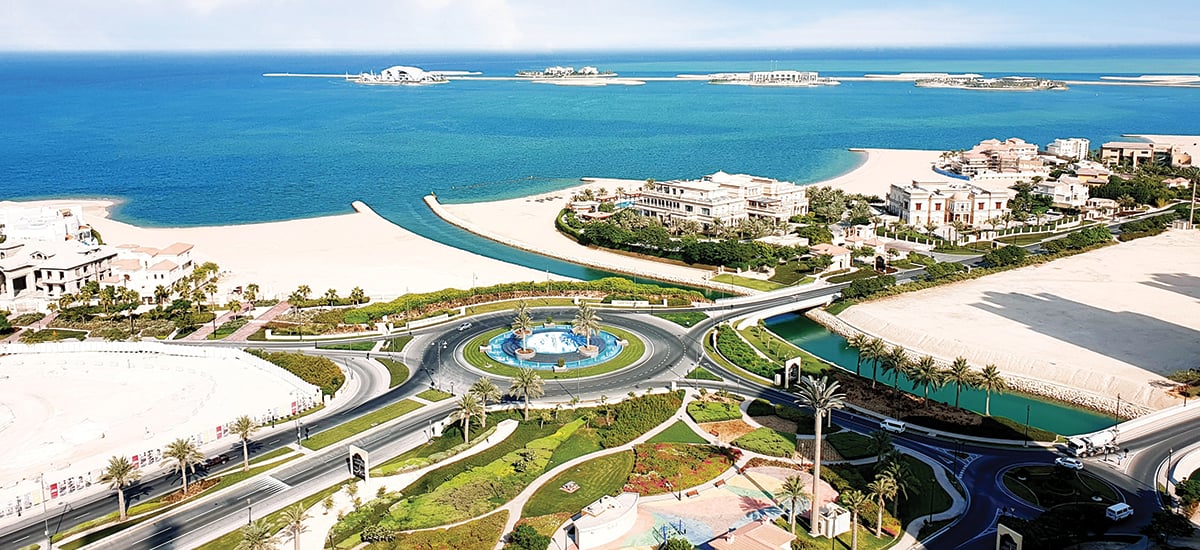
Qatar Opens REITs Market
In a significant development for the Gulf region, Qatar is opening its market to real estate investment trusts (REITs) as it welcomes international and local investors looking to benefit from the nation’s rapidly expanding property market.
As Qatar readies to host the 2022 FIFA World Cup and the finishing touches are being added to an array of world-leading infrastructure projects, the Gulf state’s real estate market makes an attractive investment opportunity. The arrival of REITs will further boost Qatar’s standing as a lucrative destination for investors.
REITs pool real estate assets such as retail malls, office buildings and apartment blocks into one fund, with shares sold to investors. They offer excellent liquidity—shares can be traded daily on exchanges—and guarantee annual payouts of over 80% of the trust’s net income, depending on jurisdiction. [1]
We encourage both local and international entities to use this unique opportunity and start their ventures at QFC.
— Nasser Al-Taweel, Deputy CEO and Chief Legal Officer, QFC
In a key move to boost the launch of REITs, the Qatar Ministry of Justice has opened a field office at the Qatar Financial Centre (QFC), a leading onshore financial and business centre located in Doha. This will allow local and international investors to access an array of important services—including real estate registration and authentication—crucial to creating a legislative framework to support the REITs.
“With Real Estate Investment Trusts [REITs] expected to flourish in Qatar’s market as investors look into diversifying their portfolios through affordable and low-risk routes with long-term returns, QFC has a unique regime for REITs within its platform. We encourage both local and international entities to use this unique opportunity and start their ventures at QFC. The Ministry of Justice’s office at QFC will also provide vital support along the way,” says Nasser Al-Taweel, Deputy CEO and Chief Legal Officer at QFC.”
Qatar is ranked as the easiest country in the world to register property, according to the World Bank Doing Business 2020 report, which found that the quality of procedures, short time frames and low costs of registering property in Qatar were world-beating. Overall, the report ranked Qatar as one of the 20 countries worldwide that had most improved their ease of doing business. The country’s business-friendly policies, particularly the ease of registering property, help make Qatar an attractive destination for REIT investors.
REITs have long been an important feature of the U.S. investment scene and are well represented in nations such as Japan, Singapore, and the U.K. However, the Middle East and Gulf states have been underserved by real estate trusts and are now waking up to the possibilities. As Gulf states reinvent their economies to move away from reliance on oil and natural gas, they have invested heavily in other sectors including in infrastructure and real estate developments.

Nations across the region are introducing REIT legislation to attract global investors and allow local investors to take advantage of their buoyant property markets. REITs are proving to be a desirable option for investors today, given the low interest rate environment of the global economy, which is expected to persist for some time.
Qatar’s launch of a REIT system comes at an opportune moment. Construction on infrastructure projects is firing up again. With an advanced vaccination program underway—82% of the population are double-vaccinated—Qatar is putting the pandemic behind it. Economic actvitiy is restarting, and Qatar’s building boom continues at its regular pace.
Further bolstering the property market, a change in ownership rules now allows expatriates to buy real estate in more areas of the country. Previously, expatriates and foreign companies were only permitted to own properties in The Pearl Qatar artificial-island project in Doha, Qatar’s capital.
This opportunity has been expanded in recent years, and in 2020, it was liberalized further; foreigners are now allowed to buy properties in nine areas, including The Pearl, Lusail and West Bay , and there are 16 areas where non-Qataris and overseas companies can lease properties for up to 99 years.
Overseas buyers of more expensive properties are also being offered permanent residency in Qatar. The expansion of foreign ownership aims to make Qatar more appealing to overseas investors as the nation seeks to build up its non-oil investments.
Tens of thousands of new homes have been built in anticipation of the FIFA 2022 World Cup, creating a supply of high-end apartment blocks. With the Gulf region further opening up ahead of global mega events in the pipeline, both foreigners and Qataris are looking to take advantage of this new environment, and enquiries about home purchases are soaring.
FIFA requires Qatar to make at least 60,000 hotel rooms available during the weeks of the tournament, and there has been a building boom as new hotels have been constructed to house the incoming guests.
Much of the nation’s development has centred on Lusail, a new city north of Doha extending across 38 square kilometers, which is expected to become home to some 200,000 residents and 170,000 employees. It is also the location of Qatar’s largest World Cup stadium.
The 2030 Asian Games is another event driving interest in Qatar’s property market. Last year, Doha was selected as the host city, which will drive further interest in the country.

Qatar ranks first globally in facilitating procedures to obtain ownership
— Saeed Abdullah Al Suwaidi, Assistant Undersecretary for Real Estate Registration and Authentication Affairs at the Ministry of Justice
For developers and property owners, REITs offer strong advantages. Finding buyers for large real estate assets is not easy, and REITs allow real estate owners a means to exit from their investments; they will be able to receive a regular income while retaining liquid unit investment in the real estate.
Qatar’s REITs are required to distribute at least 80% of annual net income under the QFC’s Collective Investment Scheme. This also requires a minimum of 75% of the asset value to be invested in at least three income-generating assets; a maximum of 30% of assets may be invested in assets under development. REITs are required to have a fund manager to operate them, an independent entity providing asset custody services and a property management company to provide regular valuations.
The launch of REITs and recent moves to make investing in Qatar a seamless and lucrative process chime with the Qatar National Vision 2030 plan, which aims to make the nation an advanced society capable of achieving sustainable development by 2030. The plan’s four pillars commit the nation to progress in human, social, economic, and environmental development. On the economic front, Qatar is looking to build a competitive, diversified economy capable of meeting the needs of its people and securing a high standard of living.
As part of the drive to improve the business climate in Qatar, the Ministry of Justice has signed up to the Single Window Initiative, which aims to give businesses a single source for business red tape.
“Thanks to these efforts, Qatar ranks first globally in facilitating procedures to obtain ownership, according to the World Bank’s rank of ease of doing business in 2020,” says Saeed Abdullah Al Suwaidi, Assistant Undersecretary for Real Estate Registration and Authentication Affairs at the Ministry of Justice.
“These facilities are currently being offered through a single window in the ministry’s offices for the ownership and use of real estate in Pearl and Lusail, which serves the real estate investment industry generally and establishes an adequate framework to receive investors from inside and outside the country. Moreover, the ministry also provides authentication and attestation services for corporates’ contracts at the Ministry of Commerce and Industry as part of its efforts to facilitate procedures for clients and investors.”
The opening of the Ministry of Justice’s field office at the Qatar Finance Centre, which serves local and international investors registered at QFC, is a further step on the path to making Qatar a seamless business environment. Among other advantages of the field office, it will help QFC encourage a broad range of professional and business services firms to become licensed to operate in the country.
The process will be aided by initiatives to modernize operations. The Ministry of Justice is moving away from manual operations and is adopting e-services, so companies can access services without having to be physically present at one of the ministry’s offices. Applicants will only need to visit the offices to obtain legal or real estate documents.
Business-friendly Qatar is being reinvented for the 21st century, and REITs will be a key element of its new approach to its investment-led economy. As the world puts the pandemic behind it, Qatar’s REITs offer low-risk opportunities and a steady return for investors.
[1] 90% in the US (Investopedia) and other markets, 80% in Qatar
